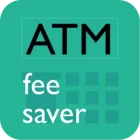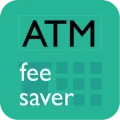Is it better to pay taxis in Nigeria with cash, or do drivers accept cards or payment apps?
Nigeria is one of those places where you can use both cash and card, but only if you stick to apps. Uber and Bolt in Lagos let me link my card, and it worked flawlessly. But the moment I tried a regular taxi, it was naira in cash every time. Drivers just don’t have card terminals. So the trick is simple: use apps in big cities for card payments, and carry cash if you need a ride anywhere else. It’s straightforward.
Taxis in Nigeria are mixed depending on whether you’re using an app or not. The app rides let you pay by card, which is super convenient, but regular taxis are cash-only and don’t even entertain the idea of cards. I personally preferred the apps, not just for payment but also for safety and set pricing. Still, I kept cash on me for emergencies or when the apps weren’t available. If you’re moving around Nigeria, it’s smart to have both.
My experience in Nigeria was a clear split: app rides versus street taxis. Bolt and Uber worked great in Lagos, and I could pay directly with my card. But when I flagged down a regular taxi, it was always cash. Naira is required, and you’ll want smaller bills for easier transactions. If you’re staying in the big cities, you can manage with apps most of the time, but for anything rural, cash is the only option. Apps haven’t spread everywhere yet.
In Nigeria, taxis are mostly cash only, but things are slowly changing. In Lagos and Abuja, apps like Bolt and Uber are very common, and those allow you to pay by card in the app. Street taxis, however, are entirely cash based. I used both methods and found the apps much easier and safer. But when I needed a quick ride outside the city, cash was essential. Cards only really work if you stick to app-based rides in big cities.


